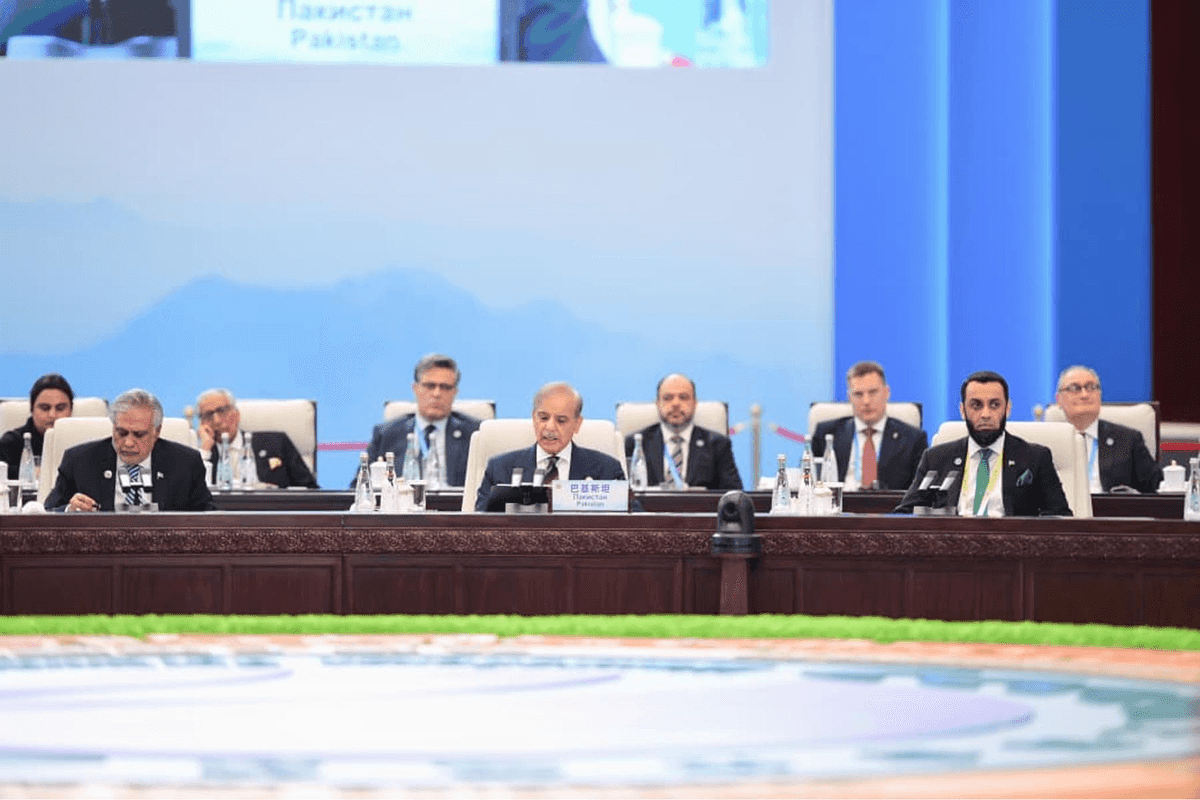Pakistan PM flags 'foreign involvement' in domestic terror attacks during SCO address
Shehbaz Sharif stressed Pakistan’s commitment to combating extremism and called for global acknowledgment of foreign interference in its security
News Desk
The News Desk provides timely and factual coverage of national and international events, with an emphasis on accuracy and clarity.

Pakistan Prime Minister Shehbaz Sharif on Monday highlighted the threat of terrorism in the country, citing what he called “irrefutable evidence” of foreign involvement in attacks on Pakistani soil, including the deadly March train assault in Balochistan that claimed more than 30 lives.
Sharif made the remarks while addressing the Shanghai Cooperation Organization (SCO) Council of Heads of State (CHS) in Tianjin, highlighting Pakistan’s sacrifices in the fight against extremism and calling for regional cooperation to combat terrorism.
Condemning terrorism in all its forms, including what he termed “state terrorism,” Sharif revealed evidence of foreign backing in the Balochistan and Khyber Pakhtunkhwa attacks, according to a statement issued by the Foreign Office.
The premier emphasized Pakistan’s resolve to tackle extremism while urging international recognition of external interference in the country’s security challenges.
Economic and regional priorities
Sharif outlined his government’s economic transformation agenda, based on three pillars: trade expansion, innovation, and enhanced revenue generation. He stressed Pakistan’s commitment to peaceful, cooperative relations with neighboring countries, advocating dialogue and diplomacy over confrontation. The prime minister called for a comprehensive South Asian dialogue to address longstanding disputes.
On broader global concerns, Sharif strongly condemned Israel’s military offensive in Gaza, demanded an immediate ceasefire, and denounced the recent attack on Iran, an SCO member state. He stressed the importance of meaningful engagement with Afghanistan, warning that instability there undermines regional security across the SCO.

The Prime Minister reiterated Pakistan’s adherence to the “Shanghai Spirit” of mutual trust, respect, and shared prosperity, emphasizing compliance with UN and SCO charters and the sovereignty of all member states. He urged SCO members to honor bilateral treaties and ensure unhindered access to water resources under existing agreements.
Highlighting Pakistan’s strategic geographical position, Sharif praised the SCO’s vision for connectivity and integration. He showcased the China-Pakistan Economic Corridor (CPEC) as a cornerstone for regional trade and economic collaboration.
Summit outcomes
The summit adopted the Tianjin Declaration, several cooperation frameworks, and key agreements, including the establishment of a Universal Center in Moscow and an Anti-Drug Center in Dushanbe. The SCO Development Strategy until 2035 was also approved.
During the SCO CHS Plus meeting themed “Promoting Multilateralism, Ensuring Regional Security, and Promoting Sustainable Development,” Sharif emphasized peaceful dispute resolution, inclusive diplomacy, and innovation-driven growth. He reaffirmed Pakistan’s role as a reliable partner in collective development.
Sharif welcomed the Lao People’s Democratic Republic as a new Dialogue Partner and lauded President Xi Jinping’s Global Governance Initiative, praising China’s leadership of the SCO over the past year. On the sidelines of the Summit, the prime minister held bilateral meetings with heads of member and partner states to discuss political, economic, and trade cooperation.
Since gaining full membership in 2017, Pakistan has actively participated in SCO activities, including hosting the SCO Council of Heads of Government meeting in Islamabad in October 2024.







Comments
See what people are discussing